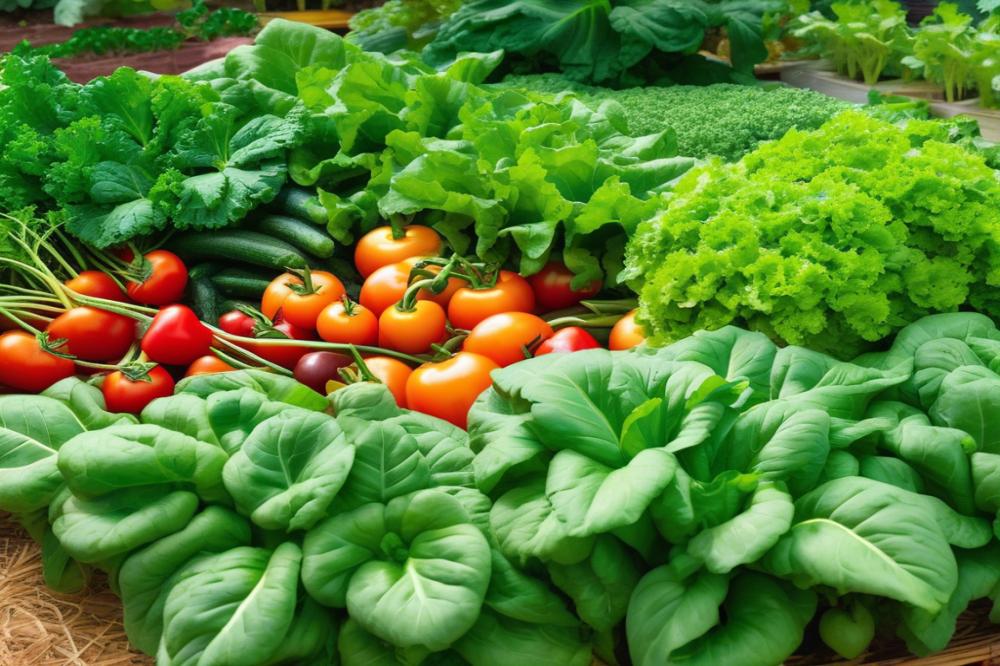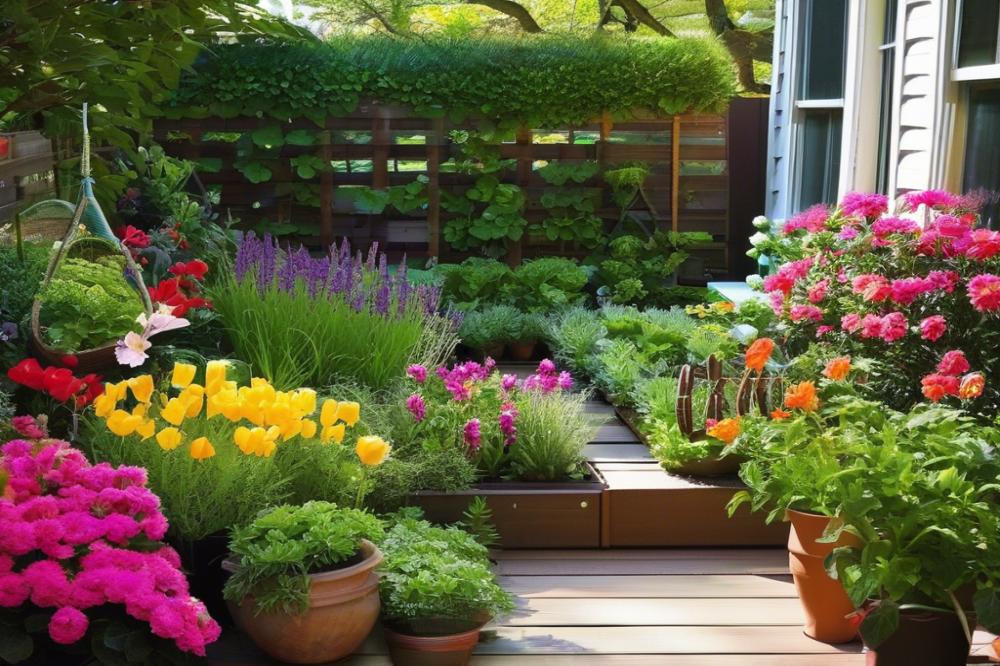Introduction to Chemical-Free Vegetable Gardening
organic gardening offers a vibrant way to connect with nature while growing your own food. Choosing to cultivate your own vegetables without chemicals or pesticides not only promotes personal health but also benefits the environment. Many people today are concerned about what goes into their bodies. chemical-free vegetables provide peace of mind and delicious flavors that are often lost in mass-produced options.
Practicing sustainable gardening techniques helps to enhance biodiversity in your garden. This means introducing various plants that thrive together, such as through companion planting. This method naturally helps to ward off pests while promoting healthy growth. Crop rotation is another essential tactic. It prevents soil depletion and reduces the risk of disease, keeping your garden thriving year after year.
Soil health is crucial in this process. Adding organic fertilizers enriches the ground with nutrients, supporting strong plant development. Composting is a simple yet effective way to create rich soil that nourishes your plants. Using heirloom seeds can also lead to a successful harvest. These seeds offer unique flavors and varieties, adding excitement to your garden.
In this article, we’ll dive deeper into these methods and discuss how to implement natural pest control. Techniques like permaculture will be explored, offering a holistic approach to growing your own food. Every section aims to equip you with the knowledge needed for your journey into growing delicious and healthy food. Get ready to explore the many benefits of cultivating your own vegetables without relying on harmful chemicals. Enjoy the adventure!
Understanding organic gardening
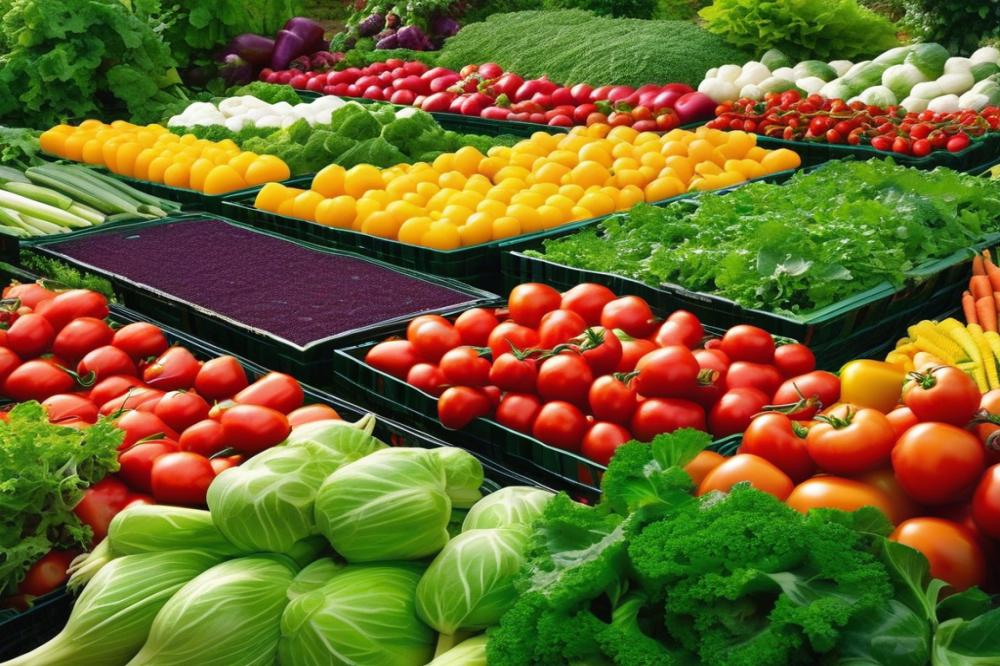

Organic gardening is more than just a method of growing vegetables. It is a holistic approach that avoids the use of chemicals and pesticides. This means relying on nature’s systems to cultivate healthy plants and produce. Many enthusiasts embrace this method for personal, environmental, and health reasons.
Principles of sustainable gardening
Sustainable gardening practices focus on maintaining balance in the ecosystem. Techniques such as crop rotation are essential. Switching up the plants in specific areas helps to prevent soil depletion and control pests naturally. companion planting is another smart strategy. By planting different species together, gardeners can deter harmful insects while encouraging beneficial ones.
The Role of Soil Health in Organic Gardening
Healthy soil is the backbone of any successful vegetable garden. Improving soil health through composting is vital. Adding compost enriches nutrients, moisture, and structure of the soil. The use of organic fertilizers can complement this, providing essential minerals without harmful additives. Strong soil promotes healthier plants, producing bountiful yields.
Benefits of Supporting Biodiversity in vegetable gardens
Planting a variety of crops can lead to a more resilient garden. Biodiversity reduces the risk of disease and pest outbreaks. It nurtures beneficial insects, which assist in natural pest control. Incorporating heirloom seeds can enhance this effect. These unique plants often attract pollinators and add flavors to your table.
Implementing permaculture principles further enriches the garden ecosystem. It emphasizes cooperation with nature, allowing for more sustainable gardening practices. By fostering a rich diversity of plant life, you create a thriving habitat for wildlife and beneficial insects alike.
Soil Health and Fertility
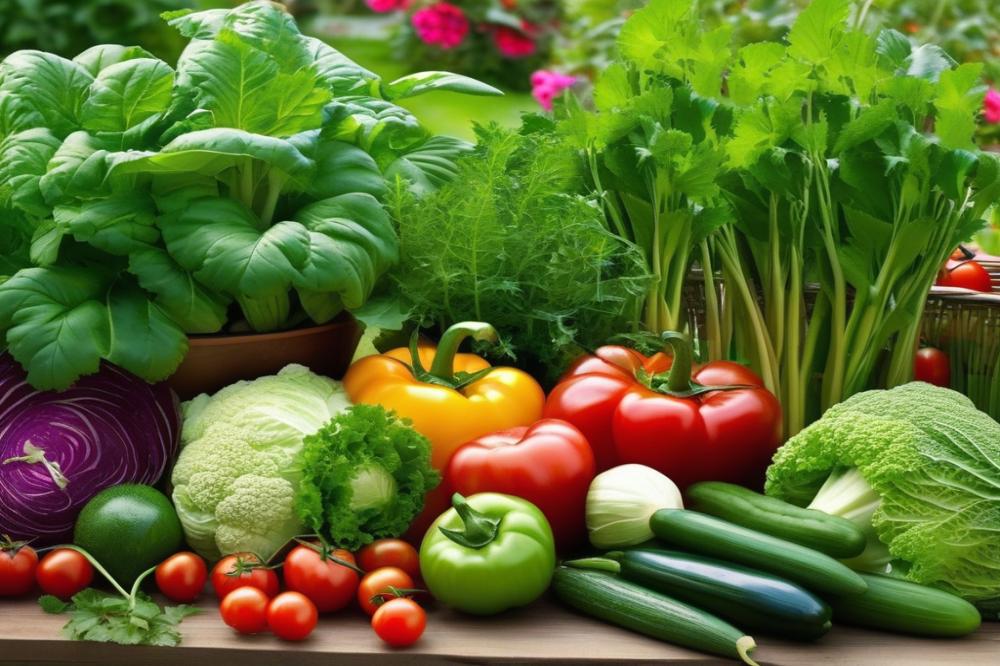

Healthy soil is the backbone of any successful vegetable garden. Rich, fertile soil promotes strong vegetable growth, allowing plants to absorb essential nutrients. It also supports a thriving ecosystem, which contributes to natural pest control. When soil is imbalanced or depleted, plants struggle to thrive and yield disappointing results.
Methods to Improve Soil Health Naturally
Improving soil naturally involves practices that enhance its structure and fertility. Crop rotation is one effective strategy. By alternating what you plant in an area, you prevent nutrient depletion and reduce pest build-up. Companion planting is another smart approach. This involves growing different plants together to boost growth and pest resistance. For example, pairing tomatoes with basil can enhance flavor and ward off harmful insects.
Utilizing Organic Fertilizers and Soil Amendments
Natural fertilizers play a significant role in building soil fertility. Organic fertilizers, such as worm castings or fish emulsion, can provide vital nutrients without harsh chemicals. Soil amendments, like rock dust or green manure, also enhance microbial activity and nutrient availability. When plants receive the necessary nutrients, their growth and yields improve dramatically. Don’t overlook the power of heirloom seeds, as they thrive well in enriched soil.
The Role of Composting in Enriching Soil
Composting is one of the most effective ways to enrich soil. By recycling kitchen scraps and yard waste, you create nutrient-rich compost. This process not only reduces waste but also improves soil structure and biodiversity. Incorporating compost into your garden provides a slow-release source of nutrients, promoting healthy root development in your plants. Consider mixing in some mulched leaves or straw for an even richer compost blend. Through permaculture techniques, you can further enhance the effectiveness of your compost in your sustainable gardening practices.
Selecting Seeds and Varieties
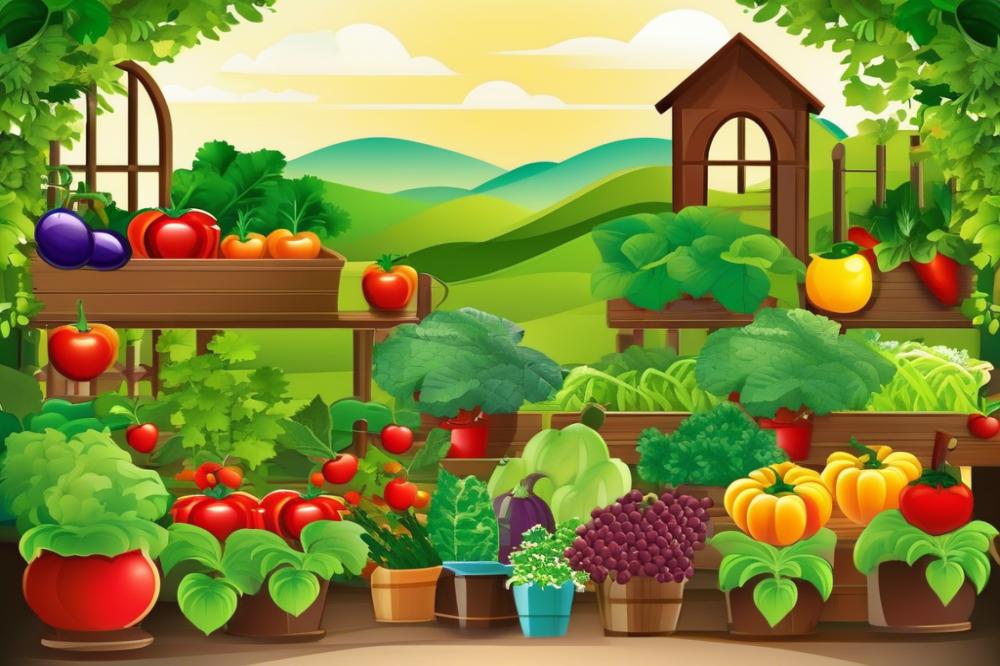

Choosing the right seeds is essential for a thriving garden. Heirloom seeds play a crucial role in sustainable gardening. They come from plants that have been passed down through generations. These varieties are known for their rich flavors and nutrient content. Additionally, heirloom seeds contribute to biodiversity. A diverse garden is more resilient and can better withstand challenges.
Climate matters when selecting vegetables. Some plants thrive in hot weather, while others prefer cooler temperatures. Research the growing zone in your area. This information helps you choose seeds suited for your local climate. Late frosts or heavy rains can affect harvests. Picking varieties that are resilient to these conditions improves your chances of success.
Understanding each plant’s unique needs can guide you in making better choices. Some vegetables require full sun, while others prefer partial shade. Watering needs also vary from one plant to another. Group plants together that have similar water requirements. This practice promotes better soil health and helps you use your resources wisely.
Growth habits are another factor to consider. Some vegetables grow tall, while others spread out. Companion planting can be advantageous here. For example, tall plants can provide shade for more delicate companions, enhancing their growth. You might also consider practicing crop rotation. Rotating crops each season helps maintain soil fertility and reduces pests naturally.
Natural pest control techniques work best with the right choices. Certain plants can repel pests or attract beneficial insects. Research which vegetables support one another in this way. Organic fertilizers, made from natural materials, nourish your plants. They help improve soil structure and promote robust root systems.
Investing time in selecting seeds thoughtfully pays off in the long run. By focusing on heirloom seeds, you not only honor tradition but also promote a healthier ecosystem. With careful planning, your garden can flourish and provide delicious, chemical-free vegetables for you and your family.
Natural Pest Control Methods
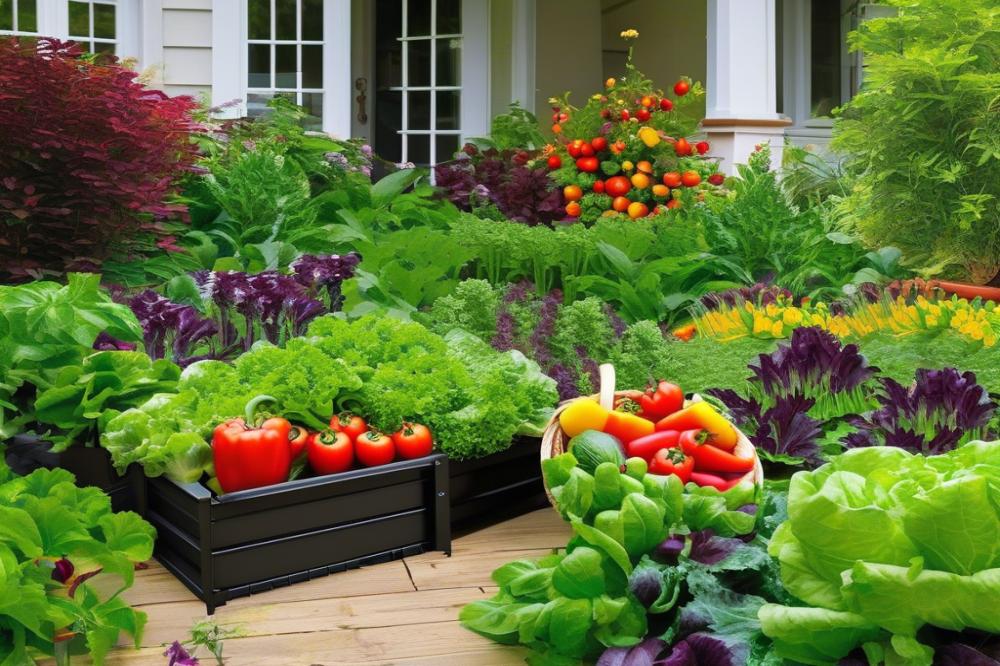

Natural pest control offers a way to manage garden pests without chemicals. Many gardeners seek to protect their growing crops while promoting a healthy ecosystem. By adopting sustainable gardening practices, you can create a balanced environment that encourages beneficial organisms.
Benefits of Companion Planting for Pest Management
Companion planting is a smart strategy to keep pests at bay. Certain plants can help repel harmful insects. For example, marigolds deter nematodes and other pests when planted near crops. This tactic also boosts soil health while fostering biodiversity in your garden. Pairing compatible plants creates a thriving habitat that can naturally minimize pest problems.
Using Beneficial Insects and Other Natural Predators
Many small insects play a big role in controlling garden pests. Ladybugs feed on aphids, while lacewings eat caterpillars and other larvae. Introducing these beneficial insects can provide effective, non-toxic pest management. Creating an environment that invites natural predators is also crucial. These insects will help reduce the need for harmful pesticides and promote a healthier garden.
Creating Habitats for Natural Pest Control Agents
To encourage beneficial insects, consider planting a variety of flowers and herbs. Plants like dill, fennel, and alyssum attract pollinators and predatory insects. Building habitats such as insect hotels can also offer shelter for these helpful creatures. Crop rotation further strengthens this method by disrupting pest life cycles, making it harder for them to establish populations. Composting contributes to this, as it improves soil health and provides nutrients, supporting a diverse ecosystem.
Utilizing heirloom seeds can foster a resilient garden that thrives without chemicals. This diversity allows for a variety of plants that can better adapt and resist pests. Permaculture principles emphasize working with nature to create sustainable systems that can help control pests naturally. All these methods together form a holistic approach to gardening that promotes health and vitality for both plants and the ecosystem.
Crop Rotation and Planting Strategies
Understanding crop rotation is essential for a successful garden. It involves changing the location of different vegetable types each season. This practice helps in breaking cycles of pests and diseases. Healthy soil is also improved when specific crops are grown in rotation. Different plants use varying nutrients, which helps maintain good soil health.
Planning a crop rotation schedule for your garden can be quite simple. Start with a variety of plants that belong to different families. For example, legumes like beans can be followed by leafy greens. Use heirloom seeds for better biodiversity. Keeping a chart or notebook can track which crops were planted and where. This way, you can plan ahead for the following seasons.
Integrating Permaculture Principles in Vegetable Gardening
Permaculture encourages sustainable gardening practices that work with nature. It focuses on creating ecosystems that offer natural pest control. Companion planting is a fantastic way to implement this. For instance, planting marigolds alongside vegetables can repel unwanted insects. Composting also supports this philosophy, as it enriches the soil without chemicals.
Choosing the right organic fertilizers plays a vital role. Natural options like compost tea or worm castings can boost plant growth. Apply them regularly to keep your plants thriving. Promote biodiversity by mixing your crops. The richer the variety, the healthier the garden becomes.
Using these techniques not only fosters a thriving garden but also contributes to the environment. Embracing crop rotation, companion planting, and permaculture will make for a healthier, chemical-free vegetable growing experience.
Sustainable Gardening Practices
Water Conservation Techniques in the Garden
In sustainable gardening, every drop of water counts. Collect rainwater using barrels and use it to irrigate your plants. Drip irrigation systems deliver moisture right to the roots, minimizing waste. Mulching around plants helps retain moisture in the soil and reduces evaporation. Try planting during cooler times of the day to minimize water loss. These techniques not only conserve water but also promote healthier soil health.
Reducing Waste Through Composting and Recycling
Composting turns kitchen scraps and yard waste into black gold for your garden. Instead of throwing away vegetable peels, coffee grounds, and grass clippings, toss them into your compost bin. This process creates organic fertilizers that enrich the soil naturally. Recycling old containers as planters can give new life to materials that would otherwise go to waste. Always remember, reducing waste is great for the environment and your garden.
Utilizing Native Plants to Enhance Biodiversity
Native plants are adapted to local conditions and help promote biodiversity. Choosing these plants enhances the ecosystem in your garden. They provide habitats for local wildlife, such as birds, bees, and butterflies. Using heirloom seeds not only preserves unique plant varieties but also supports sustainable practices. Integrating companion planting strategies can lead to better yields while naturally repelling pests. All these methods work together to create a thriving and resilient permaculture environment.
Wrapping Up Our Journey to Chemical-Free Gardening
In this article, we explored various methods to grow vegetables without using harmful chemicals or pesticides. You’ve learned about the vital role of compost in enriching your garden soil. Nutrient-rich compost promotes healthy plant growth, creating an environment where plants can thrive. Also, we touched on the benefits of natural pest control strategies, such as attracting beneficial insects and utilizing companion planting. These methods not only help keep pests at bay but also balance the ecosystem in your garden.
Adopting these practices can transform your gardening experience. Embracing alternatives like crop rotation and natural fertilizers will offer remarkable outcomes. The thrill of watching your plants flourish is truly rewarding. Generating a garden that is not reliant on synthetic products contributes to sustainable gardening. You’ll help protect the environment while growing food that is healthier for you and your loved ones.
The impact of chemical-free gardening extends beyond your backyard. Clean vegetables will enhance your family’s health, reducing exposure to harmful substances. When you support this natural way of gardening, you promote a cleaner planet for future generations. Small changes in your gardening habits can lead to a significant difference.
Start today! Whether you’re a beginner or a seasoned gardener, every step conscious of using fewer chemicals counts. By choosing to grow vegetables organically, you commit to a healthier lifestyle and a greener Earth. The journey can be simple yet profoundly fulfilling. Let’s nurture our gardens and our planet, one vegetable at a time.

